If you stare into the looking glass back through tabletop history, you’ll spot that we once reviewed Hotshots, a firefighting themed cooperative game from Fireside Games. Hotshots was not the first game to riff on the idea of firefighters battling against the relentlessness of a blazing inferno, and today, we’re taking a look at Flashpoint: Fire Rescue, the 2011 classic from Indie Boards & Cards.
In the eight years since its release, Flashpoint: Fire Rescue has received no less than eight expansions including both large and small incremental upgrades. Some of these add new maps and completely new modes to the game, whilst others introduce smaller tweaks and changes to the basic gameplay that can be enjoyed by more experienced players.
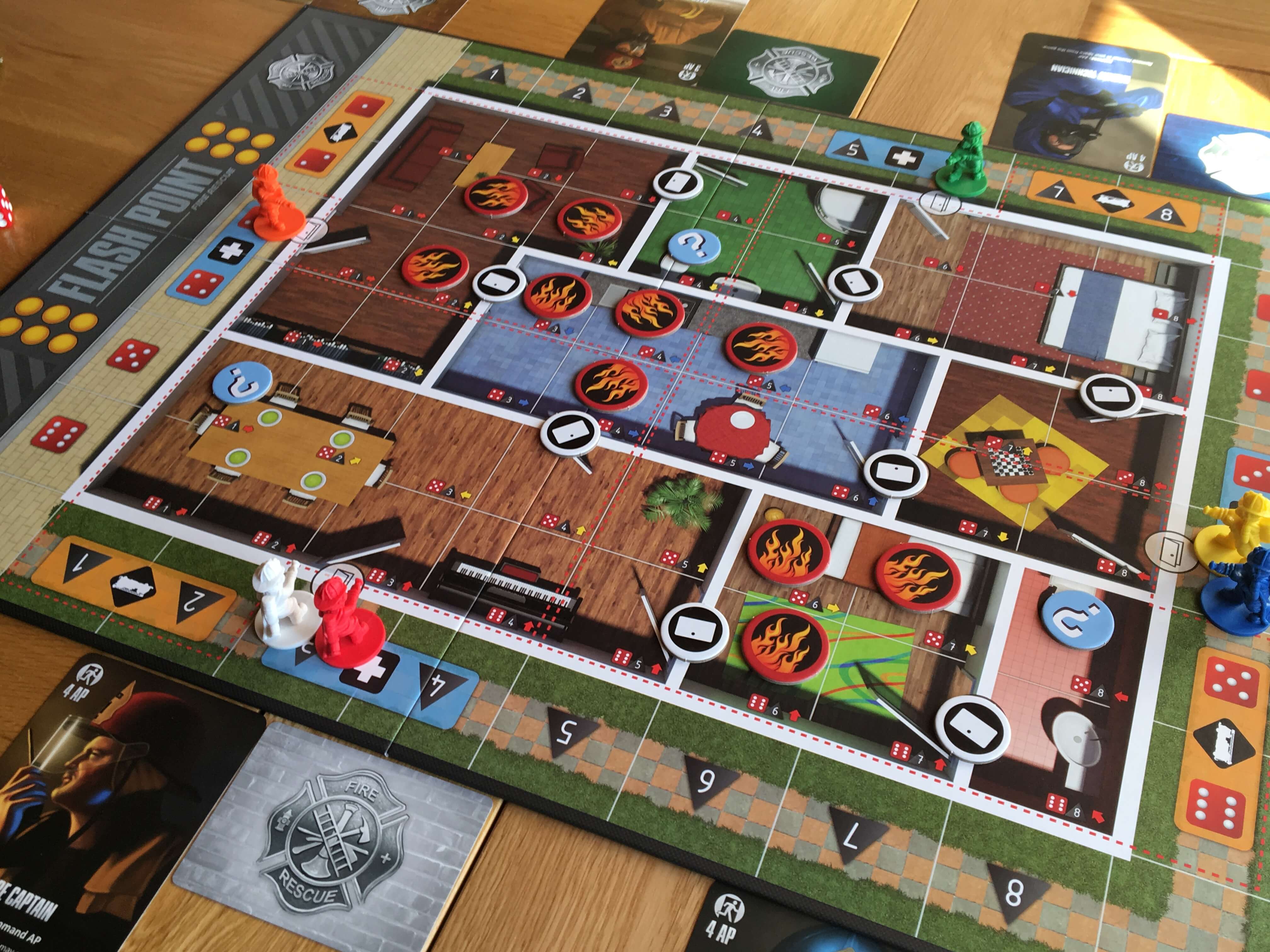
Whilst we acknowledge that these expansions exist — and that dedicated players can consider Flashpoint to have a lot of expandability and support over and above what is in the base game — we haven’t actually played any of those expansions. With that in mind, this review will only take into consideration the content and gameplay of the original base game, including the variant modes it includes right off the bat.
On that note, Flashpoint actually comes with a really nice double-sided board, with each of the two alternative sides providing a different building layout. When you combine these two boards with the variable setup instructions that come with the “advanced” mode, there’s quite a lot of potential for replay value right off the bat.
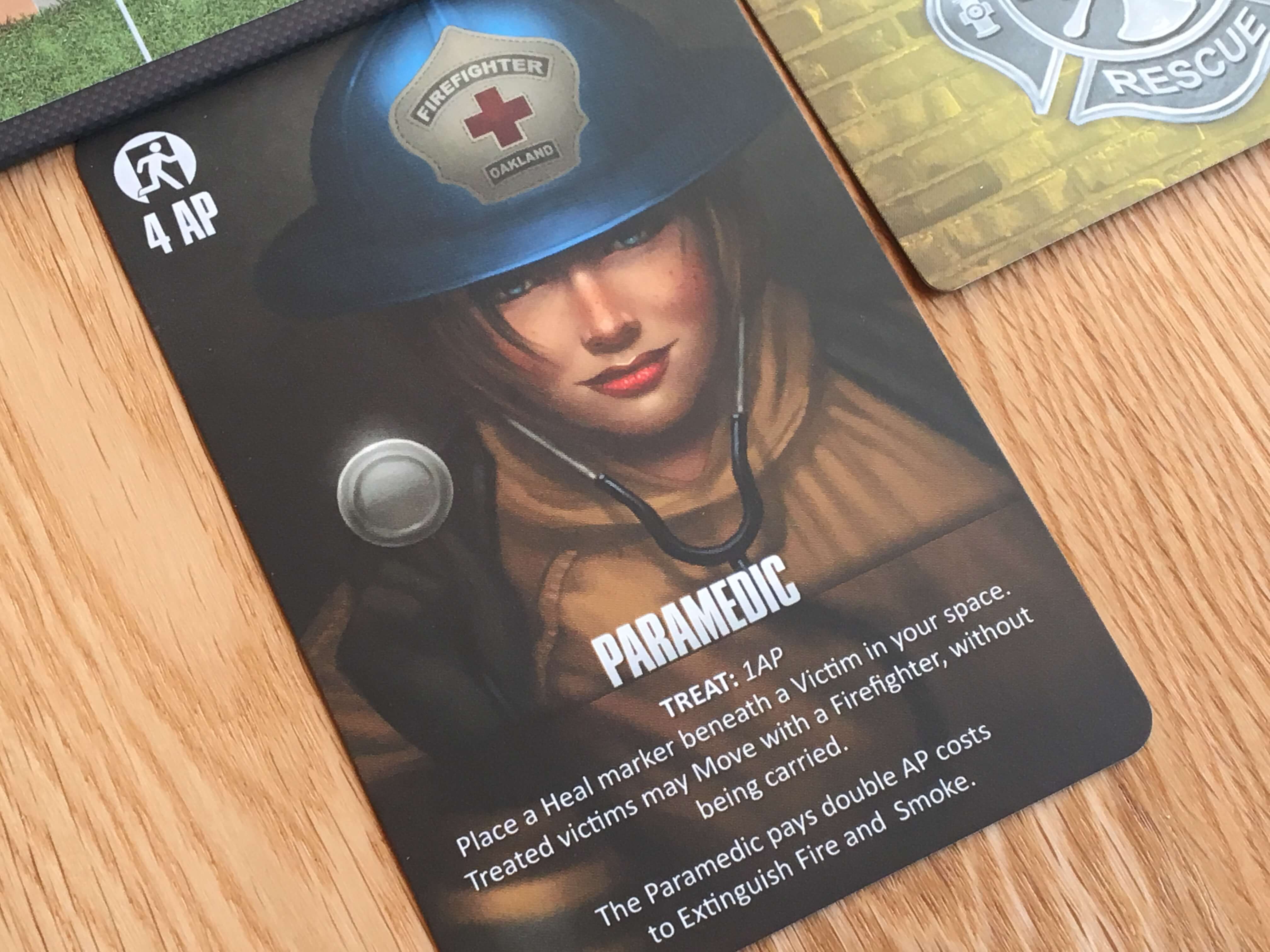
Even though I mention that there is an advanced mode by name, this is actually the mode that you’ll play most of your games with, since the beginner variant is essentially just an introduction scenario that should be winnable by most teams of firefighters within at least one or two attempts. If anything, the fact that beginner mode doesn’t guarantee success should tell you this: Flashpoint is hard!
In the regular, so-called advanced mode, a whole host of new rules are introduced that begin with the random setup, which broadly includes combustible materials being scattered about the map, random starting conditions for the fire and how it spreads and random locations for survivors. How this setup goes will dictate your chances of success or failure right from the start, with certain key routes likely to be blocked or at risk of collapse right away.
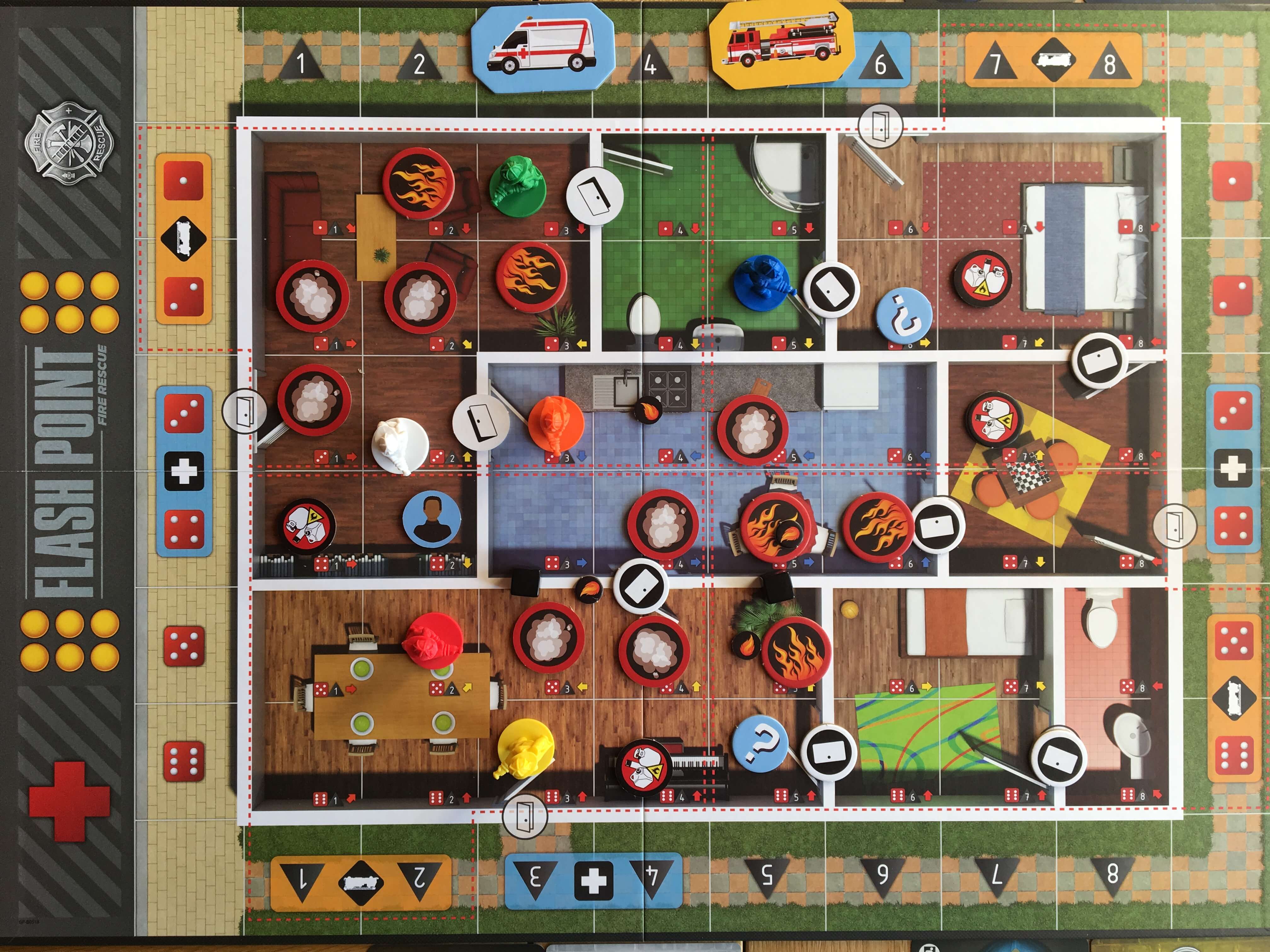
The objective in any standard game of Flashpoint is to rescue seven survivors from a possible ten — and you won’t always know exactly where they are. It’s entirely possible (and almost certain) that some survivors will be consumed by the flames, so acting fast and making life or death decisions about which areas to focus on are key to success.
There’s a Pandemic-style flow to Flashpoint’s gameplay that many players will be familiar with. The firefighters (depicted by awesome, chunky miniatures) each have their own skill, meaning that players will need to use their abilities effectively in order to succeed. Between turns, the fire will spread and cause explosions and building collapses, which can lead to survivors or firefighters being hurt or killed. Managing decisions about when to press on and when to retreat are also key.
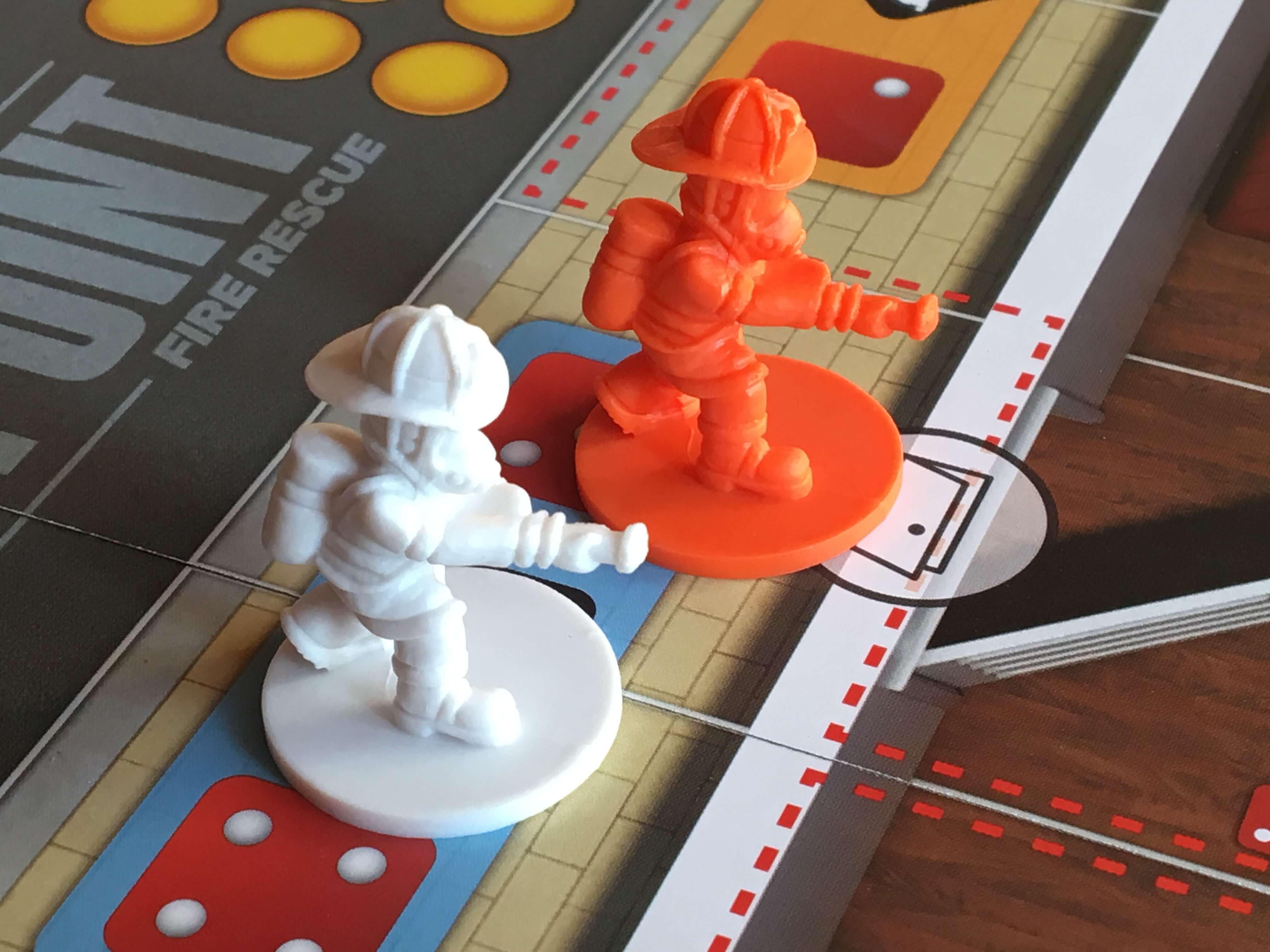
On their turn, each firefighter has four action points to spend (except the generalist, whose skill is that he has an extra point) and they’ll need to take actions like moving, rescuing survivors and extinguishing fires. Because the fire spreads (randomly, based on dice rolls) after each turn, it’s really necessary to manage the use of these points very carefully. Any wastage can result in a game loss if the rolls go against you and time runs out — this makes Flashpoint a tense and exciting experience.
As with all games that have a cooperative kind of angle, the weakness can come in the form of dominant personalities. This may or may not bother you and your group — if someone chooses to lead everyone else and supply all the decisions, then it can make other players feel like passengers, whilst on other occasions it can feel like effective and welcome leadership.
Only you can decide if this will matter to you, but personally I like to make my group feel involved and accountable for their decisions, which can sometimes be wrong. Games are played for fun though, and no one needs to get upset about making a mistake in my opinion. In particular where Flashpoint is concerned, there is enough randomness about how the fire spreads that there can be turns that will simply go bad every single time, and there’s nothing you can do about it.
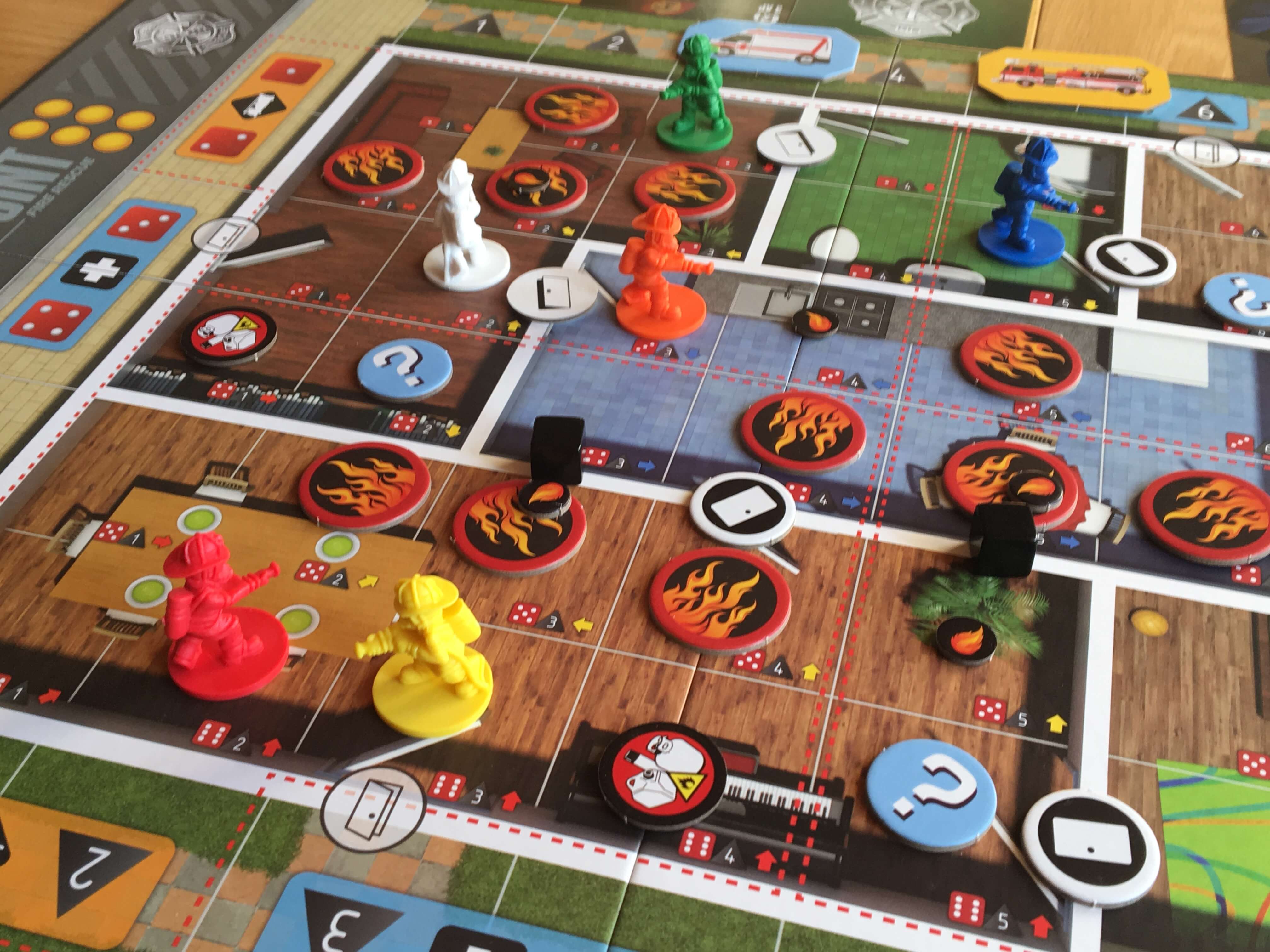
Thanks to the number of expansions (some of which I understand change the game a lot) and the variability in the base game, Flashpoint is an ideal choice for groups who like the challenge of a difficult cooperative game that has lots of options. Whilst mechanically similar to Pandemic in ways, Flashpoint feels much more personal because of the macro scale at which the action takes place. Personally, I like this, but for some players there might be a bit too much intensity when the fire rages and people (and pets) inevitably begin to die.
With an obvious but effective theme and a set of straightforward, easy to remember mechanics, Flashpoint is an intense, rapid and thrilling cooperative experience, but the difficulty level and randomness that can occur might put some off. For me, these things actually add to the theme, but for players who like to have absolute control over proceedings, they will be a problem.
The market isn’t awash with cooperative experiences and the firefighting theme isn’t widely used even within it. I loved Hotshots for the solo experience, but I think Flashpoint is a better cooperative game, and it certainly brings the action home at a finer level of detail. It feels very different to other games in the genre and because I enjoy the theme so much, Flashpoint is a keeper for me, at least until something even more exhilarating comes along to challenge it.
You can purchase Flashpoint: Fire Rescue on Amazon or find more information on their website.
Love board games? Check out our list of the top board games we’ve reviewed.
